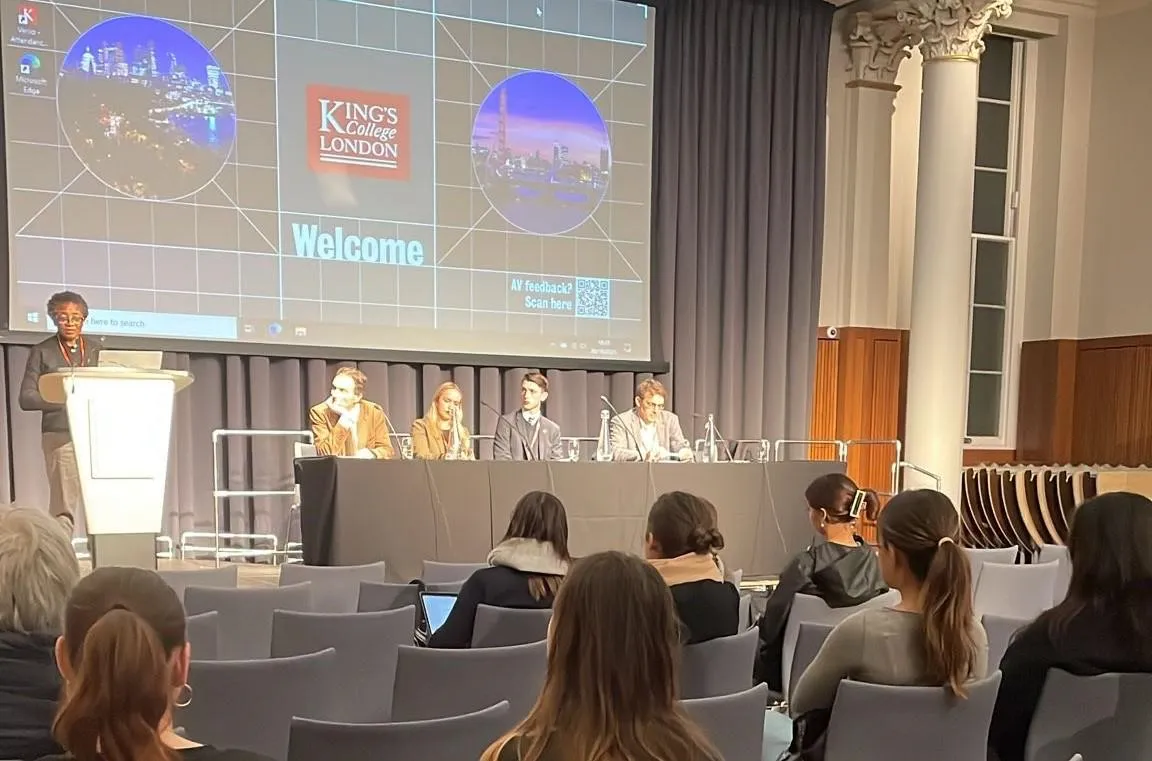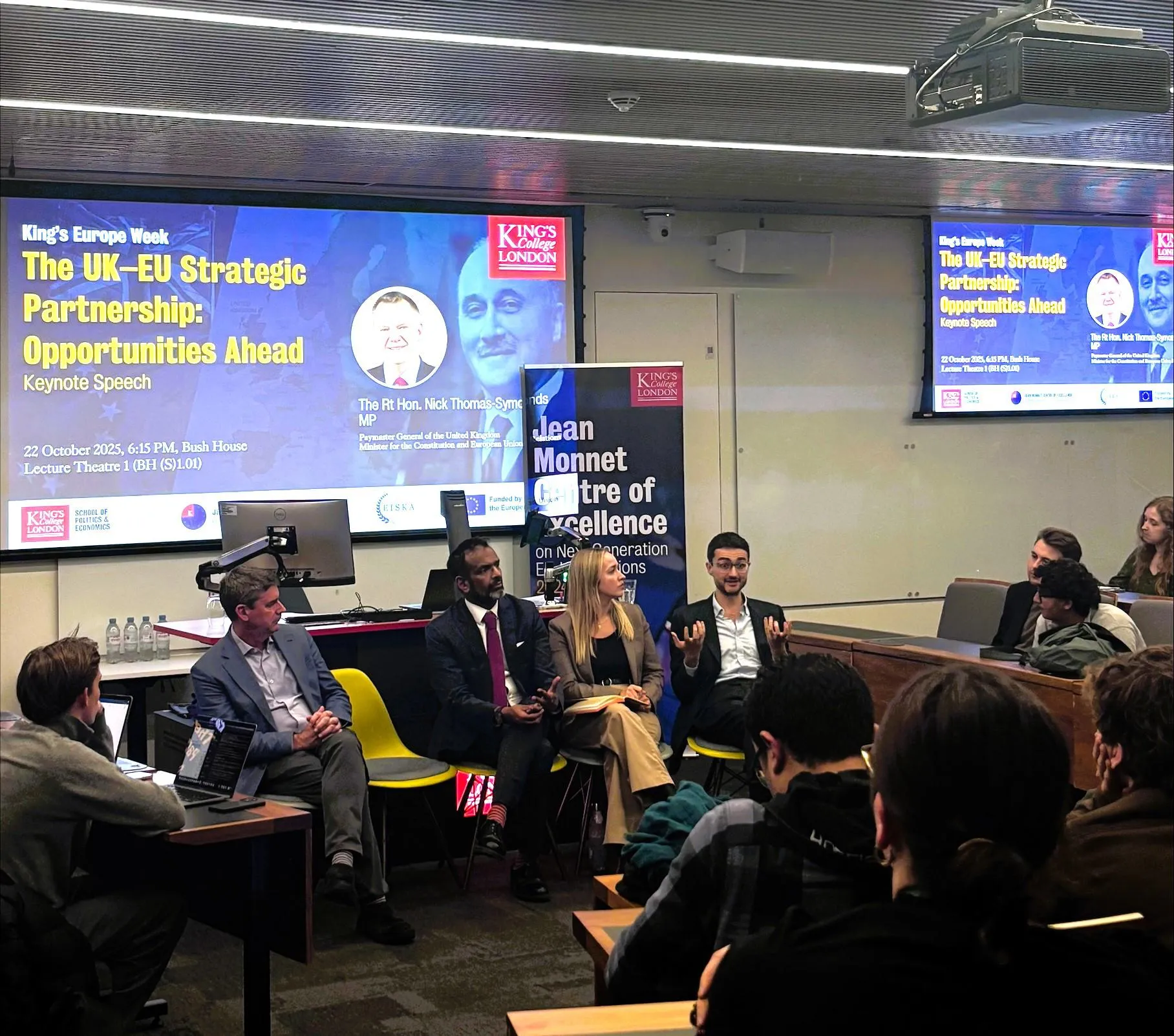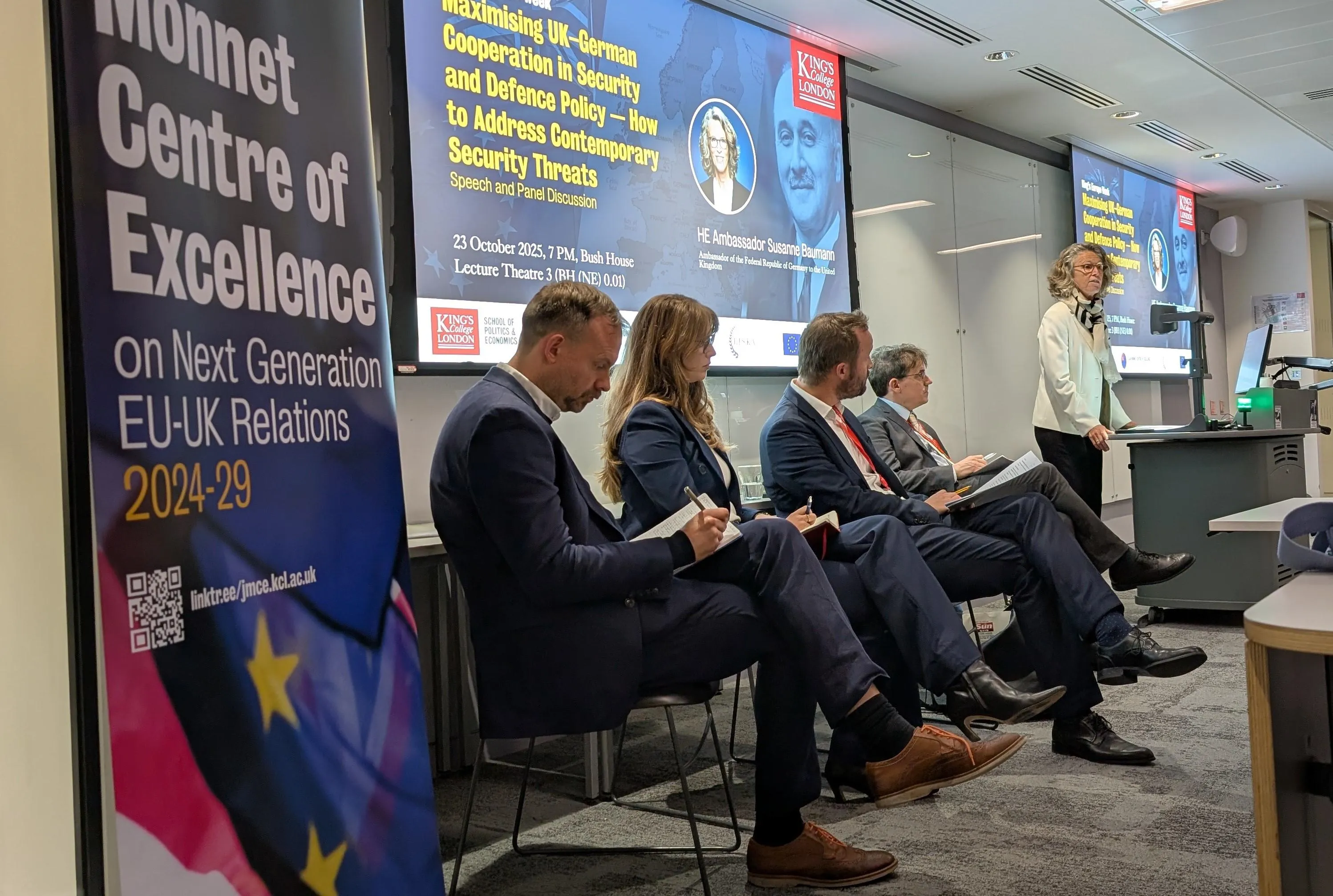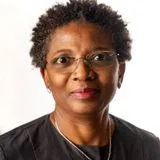27 October 2025
Reflecting on 'outstanding' Europe Week at King's
The inaugural European Week saw a fascinating series of events that put focus on the challenges shaping the continent as well as the opportunities that lie ahead.

The event, organised by the Jean Monnet Centre for Next Generation UK/EU Relations, ran from 20-23 October and played host to a week of activities designed to provoke debate, reflection and inquiry.
Professor Christoph Meyer, who led European Week on behalf of the Jean Monnet Centre, said: “It was a great privilege to host our first European Week and, indeed, to welcome so many outstanding speakers to King’s across the series of events. We’re grateful to our audiences, whose engagement with the topics truly made the week what it was, as well as to our speakers for sharing their knowledge and expertise with us.
“Plans are already afoot for the next European Week and we look forward to an even better series of events next year.”
The week began with a panel event on 20 October, Brexit and Youth, jointly organised with the European and International Studies King’s Association (EISKA). Introductions and opening remarks were given by Professor ‘Funmi Olonisakin, Vice President (International, Engagement & Service).
The event was chaired by Cristian O’Sullivan Sanchez, president of EISKA, and featured panellists Sebastian Maillard (Chatham House) Jannike Wachowiak (UK in a Changing Europe), and Professor Christoph Meyer (King’s College London).
The panel focussed on the challenges and changes to youth mobility and opportunity in the post-Brexit world as well as the prospects for change in the coming years, on both sides of the English Channel.

On 21 October, a distinguished panel of King’s alumni discussed Europe’s Future in the Age of Geoeconomics. Event chair, Prof Meyer was joined by Josephine Daniel (former Ministry of Foreign Affairs, Denmark) and Adrian Vodislav (European Investment Bank). Discussions were wide-ranging but centred on how Europe might harness its substantial economic strengths better, reform internally to stop and reverse gradually decline and how it should navigate the tensions between the benefits of openness and cooperation whilst reducing critical dependencies that have or might be exploited by other powers.
The keynote lecture was held on 22 October by Nick Thomas-Symonds MP - UK minister for the constitution and European Union relations. The speaker was introduced by Professor ‘Funmi Olonisakin, Vice President (International, Engagement & Service). The Minister reflected on the contemporary relevance of the original vision and political philosophy of Jean Monnet – one of the so-called “fathers” of European integration. He critically discussed the history of UK/EU relations post-Brexit and some of the negative consequences of the current deal, and, finally, articulated the government’s vision for a reset and deepening of the relationship over the course of the current parliament.
The event, The UK–EU Strategic Partnership: Opportunities Ahead, also featured a panel discussion led by Professor Anand Menon (King’s College London) and featuring Joël Reland and Jannike Wachowiak (UK in a Changing Europe), and Peter Foster (Financial Times).
Panellists took questions from the audience and reflected on the substance of the minister’s speech and discussed the prospects of and obstacles to a closer UK/EU relationship.

Concluding the week, on 23 October, was Maximising UK–German Cooperation in Security and Defence Policy — How to Address Contemporary Security Threats. Opening remarks were delivered by Dr Elisa Cavatorta, Vice Dean (International) for the Faculty of Social Science and Public Policy.
Special guest for the event was Susanne Baumann, Germany’s new ambassador to the UK since September 2025, who delivered a speech on the German outlook for defence and security in Europe and the European Union, particularly in light of the ongoing Russia invasion of Ukraine and the broader threat Russia poses to European security.
The ambassador also touched on recent developments and agreements between the UK and Germany, how she hoped the UK’s role might evolve on the European stage in future and how Anglo-German cooperation can help in this regard.
The ambassador was joined by panellists Dr Ben Jones and Dr Holger Stritzel (King’s College London), and Armida van Rij (Centre for European Reform) for further discussion of the evolving security dynamics and trade-offs on the continent. Questions were also put to the ambassador by the panel and by the audience too.

Find out more...
For more information about the Jean Monnet Centre of Excellence on Next Generation EU-UK Relations at the link here.





